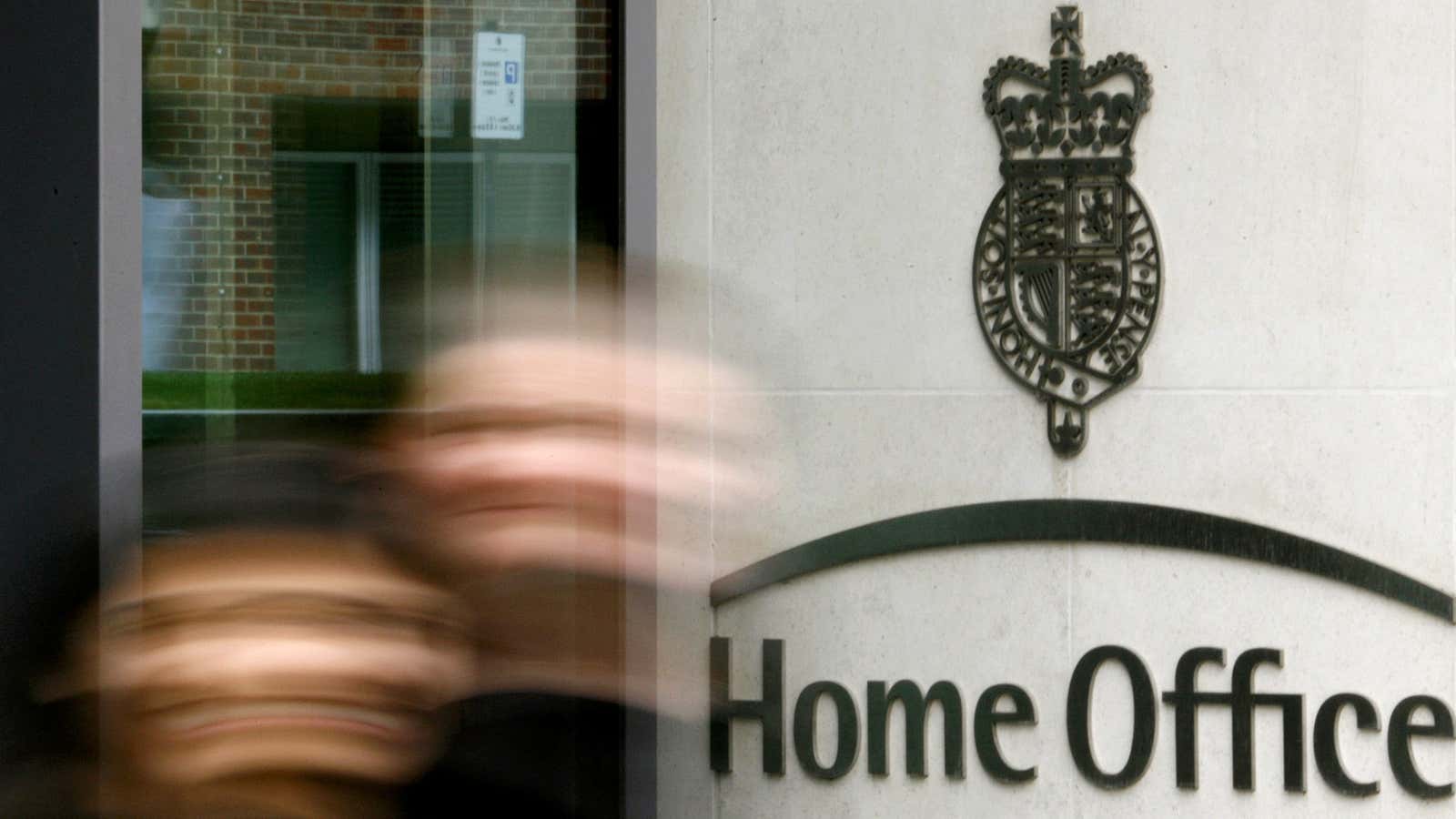Many people in Britain are not originally from there. In the best of times, they’re doing fine; in the worst, like the coronavirus pandemic, they’re far more vulnerable.
One reason is that in addition to the broader economic consequences of the pandemic, many immigrants’ right to stay in the UK could be in jeopardy if they lose their jobs. That’s because these days, more than 100,000 people a year are granted job-dependent (called “Tier 2”) visas, with the majority of them coming from poor countries.
Following up on guidance issued last month, the Home Office told Quartz via email that no one (worker or otherwise) will be considered an “overstayer or suffer any detriment” if their visa expired after Jan. 24, and they’re unable to leave because of lockdowns or self-isolation. The exemptions last until May 31, but may be extended further, and a dedicated helpline has been set up for those who need assistance.
While these measures will help some people, they are temporary in nature, and they don’t address a much deeper problem. The Institute for Social and Economic Research, at the University of Essex, has warned that about a quarter of UK jobs could be lost due to the coronavirus.
Under existing rules, immigrant workers would have to leave the country within 60 days if they are laid off. That applies to those who’ve spent fewer than five years in the UK. After that, they become eligible for permanent residency.
To be sure, these are foreigners who have a leg up. To get a Tier 2 visa in the first place, they must work at a company that is registered to sponsor workers, of which there are about 31,000 (pdf) out of more than 4 million firms in the UK. Generally, they must earn above £30,000 a year, and their employer has to demonstrate to the government that no Brit can do their job.
These immigrants are, in theory, able to find new work. But considering the paperwork, and the fact that many employers have hit pause on hiring, they might have to pack up and say goodbye.
